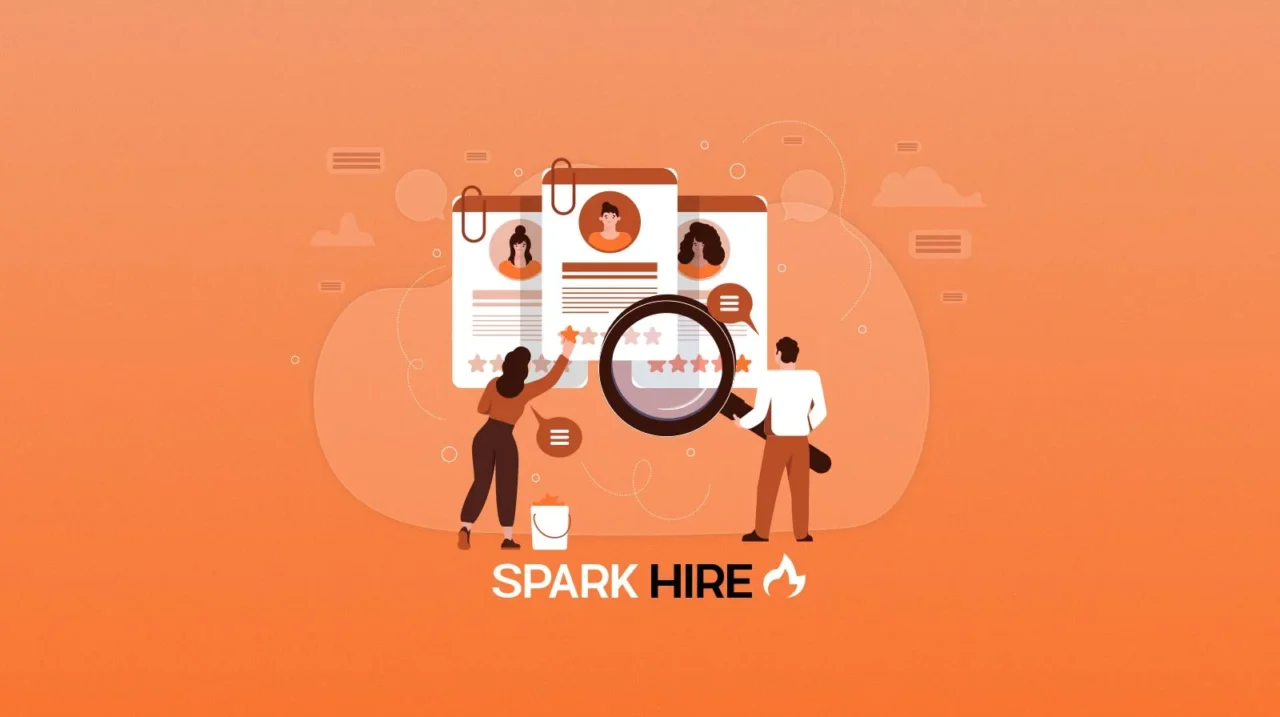Spark Hire Interview Questions and Answers (2025): Master Your One-Way Video Interview


Practice Spark Hire interviews for free with Huru: Get instant AI feedback, unlimited video practice, and real confidence—Start now!
Why Spark Hire Video Interviews Are a Game Changer in 2025
Spark Hire’s one-way video interviews have become a staple in modern hiring, especially for remote, hybrid, and large-scale recruitment. Unlike live Zoom or Teams calls, Spark Hire lets you record answers to pre-set questions—on your own time, in your own space. This flexibility empowers you, but also brings unique challenges: there’s no interviewer to clarify the question, and you get only one shot to make a strong impression.
In 2025, employers are using AI to screen recordings for communication skills, authenticity, culture fit, and keywords. To stand out, you’ll need more than just good answers—you’ll need stellar delivery, technical savvy, and real confidence.

How Spark Hire One-Way Interviews Work (And What to Expect)
With Spark Hire, you’ll receive a link to a secure portal containing the interview questions. For each question, you’ll get a short preparation window (often 30 seconds) before you must record your response—typically in one take and with a strict time limit (usually 60–90 seconds per answer).
Key points to remember:
- You cannot ask for clarification or redo your answer (unless the employer enables multiple attempts).
- Interviews are scored by both humans and AI for clarity, relevance, confidence, and alignment with the job.
- Technical setup (camera, lighting, background) plays a big part in your first impression.
For extra edge, practice unlimited Spark Hire-style interviews on Huru to get actionable feedback—before the real thing.
💡 Key Takeaway
Preparation is critical. You get only one shot per answer—rehearse responses, test your tech, and project energy, even if you’re alone in the room.
Your Ultimate Spark Hire Interview Prep Checklist
- Optimize your setup: Face a window or use a soft lamp for lighting. Declutter your background. Use headphones or an external mic for clear audio.
- Check your tech: Test your camera, internet, and the Spark Hire platform with a mock question. Charge your device and close background apps.
- Dress for success: Wear professional attire as if you’re attending an in-person interview.
- Keep notes handy: Have a printout of your resume, the job description, and 2–3 bullet points per anticipated question in your sightline (but never read verbatim).
- Practice, practice, practice: Use platforms like Huru to simulate real questions and get AI-powered instant feedback.
- Prepare for the unexpected: Have a backup device and internet source. Know what to do if tech glitches occur (see FAQ below).
💡 Key Takeaway
The best answers start with the best environment. Technical clarity, confidence, and calm—plus a touch of preparation magic—set you apart.
The 12 Most Common Spark Hire Interview Questions (2025) & How to Nail Them
Below are the questions recruiters are most likely to ask in Spark Hire one-way interviews, with proven strategies and sample answer frameworks.
Tip: Build your answer around the STAR method (Situation, Task, Action, Result) for behavioral prompts, and always connect your skills directly to the job description.
| Question | Why It’s Asked | Sample Answer Outline |
|---|---|---|
| Tell me about yourself. | To gauge your career story, fit, and communication style. | Present (role/field), Past (key achievement or skill), Future (why this job/company). |
| Why do you want this job? | Assesses motivation and culture fit. | Connect personal passion/experience to the company’s mission and role’s impact. |
| What are your strengths? | Evaluates self-awareness and alignment. | Pick 1–2 core strengths with a quick story/example. |
| What’s your biggest weakness? | Tests honesty and growth mindset. | Pick a real but minor weakness, explain how you’re improving. |
| Describe a challenge you’ve overcome. | Assesses problem-solving and resilience. | STAR format, focus on results and learning. |
| How do you handle stress? | Evaluates coping mechanisms and emotional intelligence. | Brief story of high-pressure success, plus your go-to strategies (e.g., list-making, breathing). |
| What do you know about our company? | Tests research and enthusiasm. | Mention 2–3 facts (recent news, values, projects) and relate to your goals. |
| Where do you see yourself in 5 years? | Assesses ambition and alignment with growth paths. | Show you want to grow with the company (mention learning goals). |
| Why did you leave your last job? | Evaluates professionalism and positivity. | Stay positive, focus on the future and your fit for this new role. |
| Describe a time you worked in a team. | Checks collaboration and communication. | STAR format, emphasize your role and successful outcome. |
| How do you stay organized? | Evaluates habits and self-management. | Briefly describe a system or tool you use, and results. |
| Do you have any questions for us? | Assesses curiosity and engagement. | Always ask something! (e.g., What does success look like in this role?) |
Want to practice these with instant AI scoring? Try them for free on Huru and build lasting interview confidence!
💡 Key Takeaway
Structure your answers with clarity and positivity. Use real, specific examples and stay composed—AI and recruiters both notice authenticity and professionalism.
Expert Strategies to Beat the One-Way Video Format
- Mirror practice: Rehearse your answers in front of a mirror or webcam. Watch for body language, posture, and facial expressions.
- Silent rehearsal: Use your prep time to outline answers in your head. Pause briefly before you speak for clarity.
- Keyword optimization: Subtly use keywords from the job description to help AI-powered systems recognize your fit.
- Pause strategically: Don’t be afraid of brief silences—they make you seem thoughtful, not rushed.
- Personal storytelling: Tell concise, memorable stories. Unique anecdotes set you apart.
- Body language: Sit up straight, look at the camera, and smile. Keep gestures natural but visible.
- Tech backup plan: Prepare a nearby phone/tablet and hotspot as a fallback if something fails.
- Thank you follow-up: If you have a recruiter’s email, send a brief thank-you referencing your interview within 24 hours.
For more actionable tips, see our Brand Strategist Interview resource for guidance on strategic communication.
💡 Key Takeaway
Spark Hire interviews reward preparation and presence. Practice with Huru to master delivery, not just content!
Q&A: Pro Interview Coach Answers Your Burning Spark Hire Questions
If possible, immediately refresh and try again. If the system locks you out, contact support and your recruiter with a brief, polite explanation—employers understand tech happens!
Yes, but only as prompts. Don’t read answers word-for-word—AI and recruiters pick up on lack of eye contact and monotone delivery.
Smile (even if it feels weird), sit up tall, and use your hands naturally. Practicing with video (try Huru) helps desensitize nerves!
Yes! Send a short thank-you email to stand out from other candidates—reference something unique about your interview.
AI looks for communication clarity, positivity, relevant keywords, and a confident tone. For best results, speak clearly and tie your experience directly to the job posting.
On Huru.ai—record unlimited video answers, get customized AI feedback, and track your progress!
Video: Top Spark Hire Interview Tips—A Visual Walkthrough
Further Reading: Level Up Your Interview Skills
- Advance your communication with Political Communicator Interview Questions
- Explore tech-focused roles in Healthcare IT Interview Questions
- Sharpen your strategy with Brand Strategist Interview Questions
- Strengthen your healthcare communication skills with Healthcare Communicator Interview Questions
- Dive into more career prep at Huru.ai
About the Author
Elias Oconnor is a content writer at Huru.ai, specializing in interview mastery, career advancement, and the integration of AI in modern hiring. With a passion for empowering job seekers, Elias delivers actionable insights and empathetic guidance for professionals at every stage of their journey.


 Feb 22,2022
Feb 22,2022  By Elias Oconnor
By Elias Oconnor